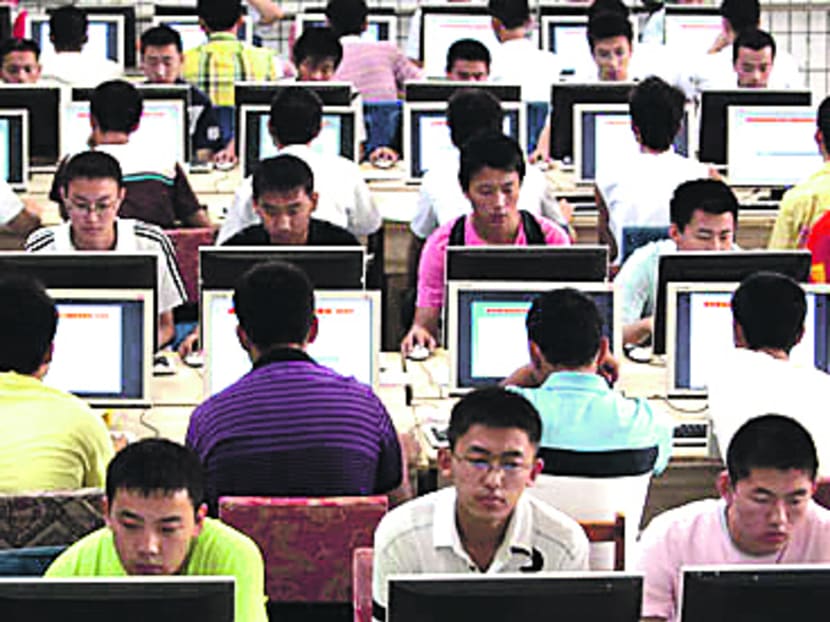China calls on Russia to tighten Internet controls
DUSHANBE — China has urged Russia and its Central Asian partners in a six-nation security alliance to tighten control over the Internet and take other steps to prevent “external forces” from fomenting revolution in member states.

A busy Internet cafe in Taiyuan, China. The Chinese Public Security Minister called on members of a security alliance to come up with measures, including those to strengthen control over social networks. Photo: Reuters
DUSHANBE — China has urged Russia and its Central Asian partners in a six-nation security alliance to tighten control over the Internet and take other steps to prevent “external forces” from fomenting revolution in member states.
Chinese Public Security Minister Guo Shengkun’s remarks at a meeting with counterparts from the Shanghai Cooperation Organisation (SCO) on Thursday could lead to fears of further restrictions from states that critics say already try to silence dissent.
They are likely to please the Kremlin, however, which accuses the West of supporting opposition protesters who drove an ally of Moscow from the presidency in Ukraine in February as well as supporting government opponents in Russia.
“External forces are using the social-economic contradictions and problems ... to overthrow the authorities and are trying to provoke a new wave of colour revolutions,” Mr Guo said, according to a Russian translation of his remarks.
“Colour revolution” is the Russian term for the street protests that have brought down leaders in Ukraine, Georgia and Kyrgyzstan in the past decade.
“This is a serious threat to the sovereignty and security of countries in the region and is a shared concern of the SCO member states,” Mr Guo said.
The security alliance comprises Russia and China and the Central Asian former Soviet republics of Kazakhstan, Kyrgyzstan, Tajikistan and Uzbekistan.
Mr Guo called on member states to come up with measures “to counteract interference in internal affairs from abroad, strengthen management of non-government organisations and control over social networks in order to discover, analyse, counter and regulate factors of uncertainty and avoid repeats of colour revolution scenarios,” the translation said.
Kremlin critics accuse President Vladimir Putin of clamping down on dissent since he started a third term in 2012. The Russian authorities last month blocked access to a handful of Internet sites that have been platforms for criticism of the government, including those of prominent Putin foes Alexei Navalny and Garry Kasparov.
China announced in February that President Xi Jinping is presiding over a new working group on cybersecurity and information security, in a sign that the Communist Party views the issue as one of the country’s most pressing strategic concerns.
The government said Mr Xi and two other senior leaders, Prime Minister Li Keqiang and Liu Yunshan, a member of the Politburo Standing Committee, would help draft national strategies and develop major policies in a field that might include protecting national secrets and developing digital defences, among other goals.
The high-profile group on cybersecurity is seen to be aimed at grappling with one of the thornier issues that emerged in Mr Xi’s first year in office: Disputes with the United States over cyberattacks and debates over national security leaks.
Washington has strongly challenged China over the past few years to curb what it contends are Chinese cyberattacks on Americans and American companies doing business in China. Among the concerns is that Chinese hackers, possibly state sponsored, have been stealing corporate and national secrets. AGENCIES





